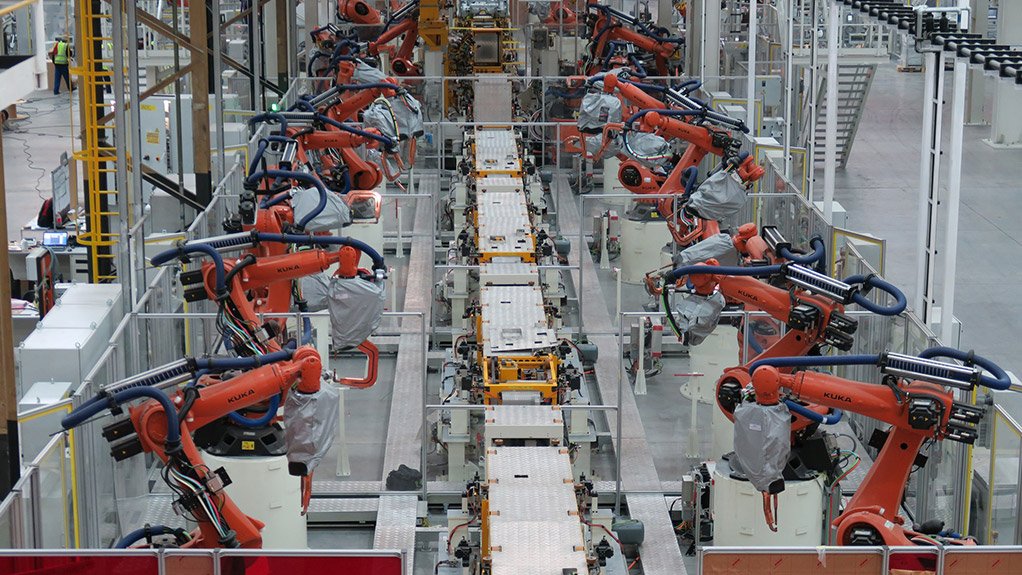As a response to the increase in recalled products in the food and beverage industry worldwide, global electronics company Omron Industrial Automation has started to introduce more sustainable business practices by improving product quality and assistance for food and beverage producers.
Omron assists old and new manufacturing plants in correcting issues that are common to products that have been sent back, such as poor sealing quality, incorrect labelling and printing codes, as well as incorrect labelling regarding the ingredients and allergens in a product, explains Omron country GM Victor Marques.
He says eliminating situations that result in products being recalled will ensure that brand value is protected, retailer and consumer confidence is maintained and product disruption remains minimal.
The correct implementation of automation can reduce the risk of faulty products – whether it is the packaging or the food itself – in the supply chain, says Marques, with Omron having adapted to the implementation of new technology that has become available to the market through Omron’s research.
Omron president and CEO Yoshihito Yamada announced in April that the company had started with the development of a machine automation controller that is equipped with a machine-learning artificial intelligence (AI).
“The AI-equipped controller achieves real-time integration between the programmable logic controller function, which controls production lines and equipment changing in microseconds on factory floors, and the AI processing function,” Marques explains.
He highlights that analysing and using combined data enable the company to quickly predict possible machine errors and prevent equipment stoppage, as well as the deterioration of product quality.
Omron automation system vision expert Josh Hodgkinson says the company can connect and interact between cloud-based systems and hardware in factories and plants.
“When it comes to new technology, Omron has been and will continue to be on the cusp of the cutting edge, constantly providing innovative solutions through our product base, which ultimately drive towards the Internet of Things (IoT) and the Fourth Industrial Revolution,” he states.
Growth and Change
Marques explains that consumer trends, such as on-the-go eating, local sourcing and the rapid rise in organic foods, will have “a tremendous influence on the way products are made”.
Market research also shows that the move towards healthier and more convenient options is an opportunity for original-equipment manufacturers (OEMs) to move into the market,” he says.
He points out that, to meet consumer needs, food processors will need to reformulate products, and factors to consider will include extending the shelf life of food, controlling the counterfeiting of products and quick, proactive reaction to recalls.
“As we know, salt and sugar are increasingly being reduced or, in some instances, eliminated altogether in foods. Considering all these factors, there will be an exponential increase in automation, visual inspection and robotic machine solutions to meet these consumer needs. We, as Omron, are perfectly placed to meet these machine solution needs,” Marques highlights.
The company believes that the local food and beverage industry will grow in market size and quality requirements. Hodgkinson explains that innovation in the technology and industrial automation field, as well as the increase in the size of the consumer market in South Africa and more broadly in Africa, will help drive industry growth.
“The fast-moving consumer goods market . . . will benefit greatly from Omron products and our ability to automate and ensure only the highest-quality goods end up at the consumer table.”
Challenges
Hodgkinson adds that the current political climate has had an effect on end-user expenditure patterns, owing to the volatility of the rand. This has also caused smaller companies to disinvest in what they deem expensive solutions.
“The first challenge has been to convince these companies that Omron can provide a cost-effective solution without compromising on the quality of the end product. The second challenge is the lack of technical skills available on the market,” he explains.
Omron has, thus, started a drive to increase the knowledge base and reach of its products by setting up reputable in-house training initiatives.
“We have a team of smart-working and committed individuals, from experienced sales engineers to dedicated application engineers who work together to provide the customer with more than just a product. At Omron, we strive to provide solutions built on strong relationships with our customer base and the latest in the automation technology market,” Hodgkinson concludes.
Edited by: Zandile Mavuso
Creamer Media Senior Deputy Editor: Features
EMAIL THIS ARTICLE SAVE THIS ARTICLE
ARTICLE ENQUIRY
To subscribe email subscriptions@creamermedia.co.za or click here
To advertise email advertising@creamermedia.co.za or click here













